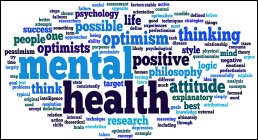
10/10/2017
Marking this year's World Mental Health Day
To mark this year’s World Mental Health Day, with Mental Health at Work as its theme, the Equality Commission is reminding employers about the importance of proactively managing employees’ mental health issues.
Chief Commissioner Michael Wardlow said: “Mental health issues including stress, depression, anxiety and other serious conditions accounted for 15.8 million working days lost (11.5% of the total) in the UK in 2016.
“Mental ill health includes a wide range of conditions and everyone who suffers mental ill health will have a different experience of it, and will have different ways of coping. So for employers, it’s important to realise that reasonable adjustments to help employees through times of mental ill health will be highly individual and are best arrived at in consultation with the individual employee.
“We recently
supported a case of a woman with mental health issues who asked for a reduction in working hours from 47.8 to 40 per week to help her cope. Her employer did not deal with this in a timely way, nor did it consider the impact her disability was having on her work, her life and her colleagues. The Tribunal found that it had failed to grant her a reasonable adjustment and awarded her £11,840.
“Making a few small adjustments to help someone stay at work or help someone back to work after sickness absence is much less expensive than recruiting and training a new employee, and causes less upheaval. The law only requires employers to do what is reasonable.
“We have many services available to employers to help them reduce sickness absence due to mental ill health, much of it via our partners in our
Mental Health Charter, who provide detailed training and guidance. The Mental Health Charter itself offers a framework for managing employees’ mental health at work, reducing absence, managing mental ill health and complying with the law.
“Why not make World Mental Health Day the day you decide to commit to our Mental Health Charter, and do talk to your employees, to us at the Commission, or to our Mental Health Charter partners. That way you are far more likely to comply with the law and maintain stability and productivity.”